Fill out the form to get more information about the Fullstack Academy bootcamp of your choice.
05.12.2025
Asian American and Pacific Islander Innovators Who Have Transformed Technology
By The Fullstack Academy Team
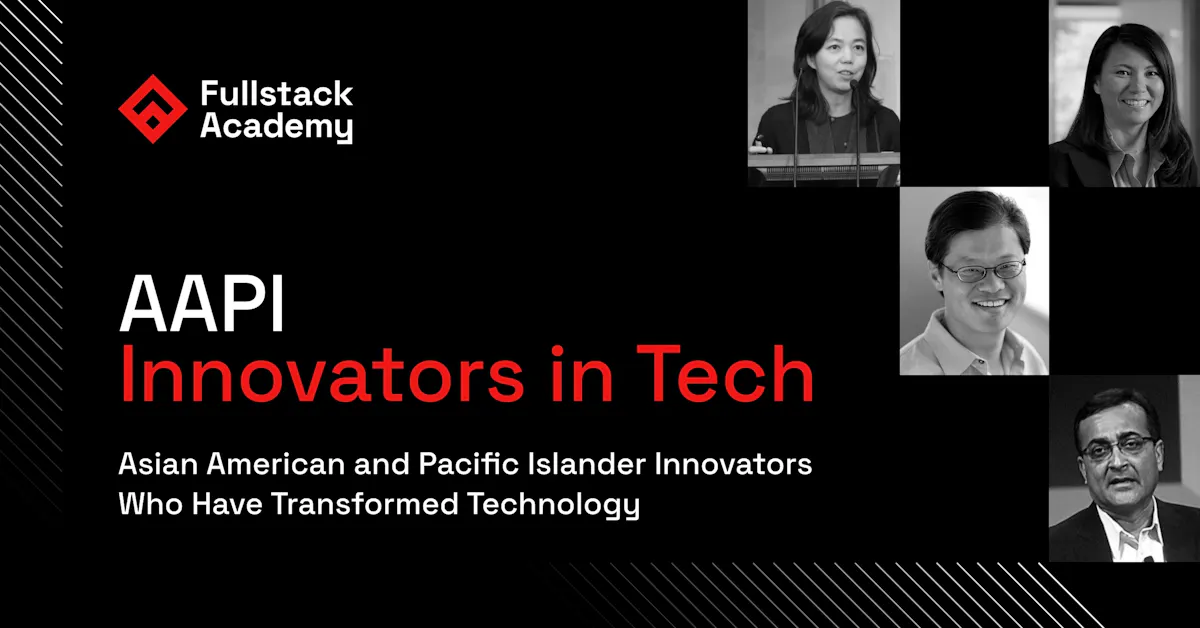
From the USB to one of the world’s most recognizable search engines, many of today’s technological advancements wouldn’t be possible without groundbreaking work from Asian American and Pacific Islander innovators.
According to the New American Economy Research Fund, over 18% of all Asian American and Pacific Islanders workers are in a STEM field. Despite being one of the largest ethnic groups of innovators, Asian Americans and Pacific Islanders are often met with challenges that make their accomplishments go unrecognized.
Read on to learn about the impactful contributions of Asian American and Pacific Islanders who have driven innovation in technology and beyond.
Fei-Fei Li: Computer Scientist
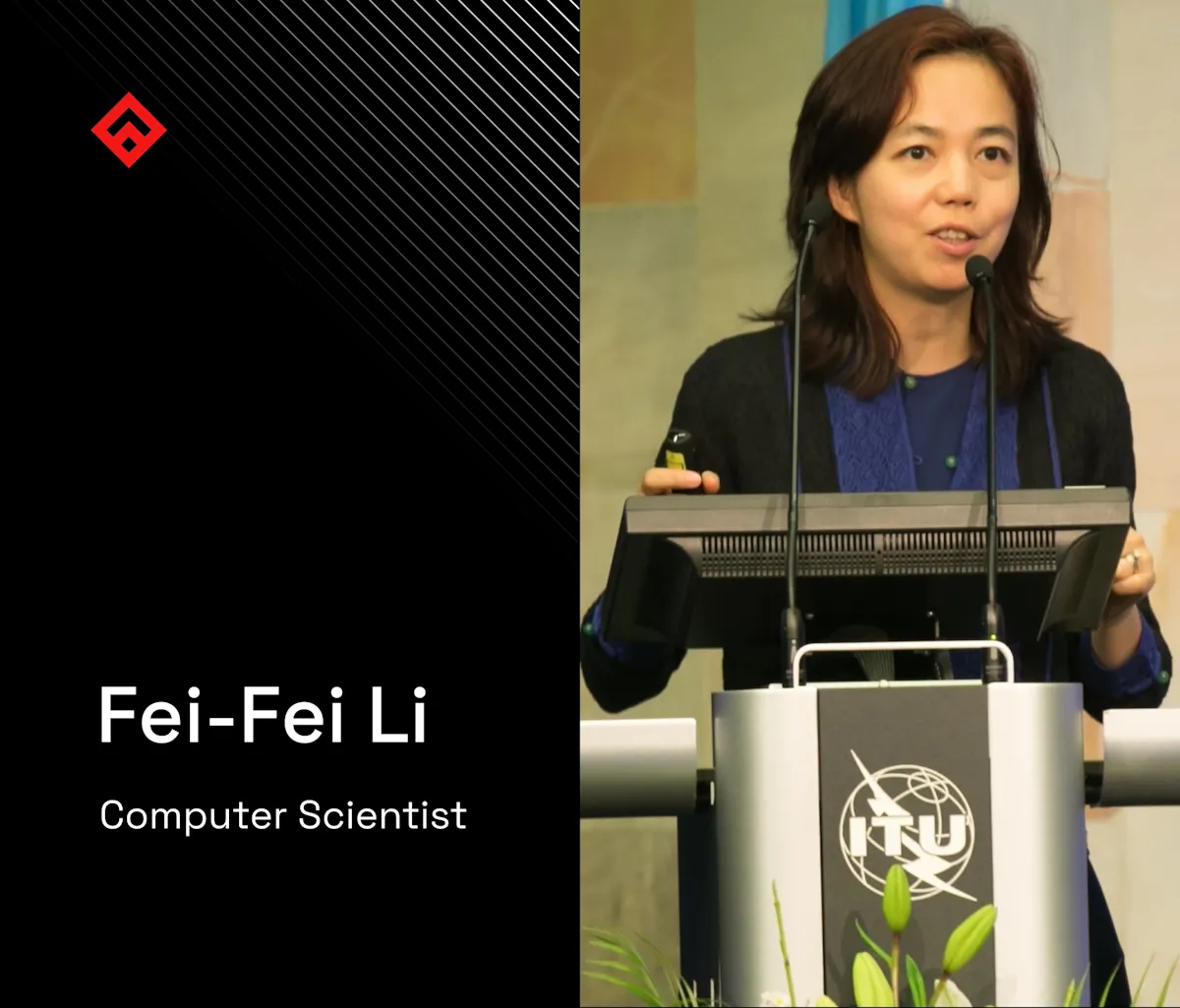
1976 - Present
Background: Named one of Forbes’ Top 50 Women in Tech in 2018, Fei-Fei Li is a leading innovator in artificial intelligence (AI). After moving to the United States at 15, she earned her B.A. in physics from Princeton University and a Ph.D. in electrical engineering from the California Institute of Technology. Today, she serves as the inaugural Sequoia Capital Professor in the Computer Science Department at Stanford University and the Co-Director of Stanford’s Human-Centered AI Institute.
Innovation: Often described as an “AI Pioneer,” Li is the mind behind ImageNet, a large-scale dataset critical to many of the latest developments in deep learning and AI. Li is also a leader in advocating for diversity in STEM and AI—co-founding AI4ALL in 2017, a national non-profit dedicated to increasing diversity and inclusion in AI education.
Ajay Bhatt: Computer Architect
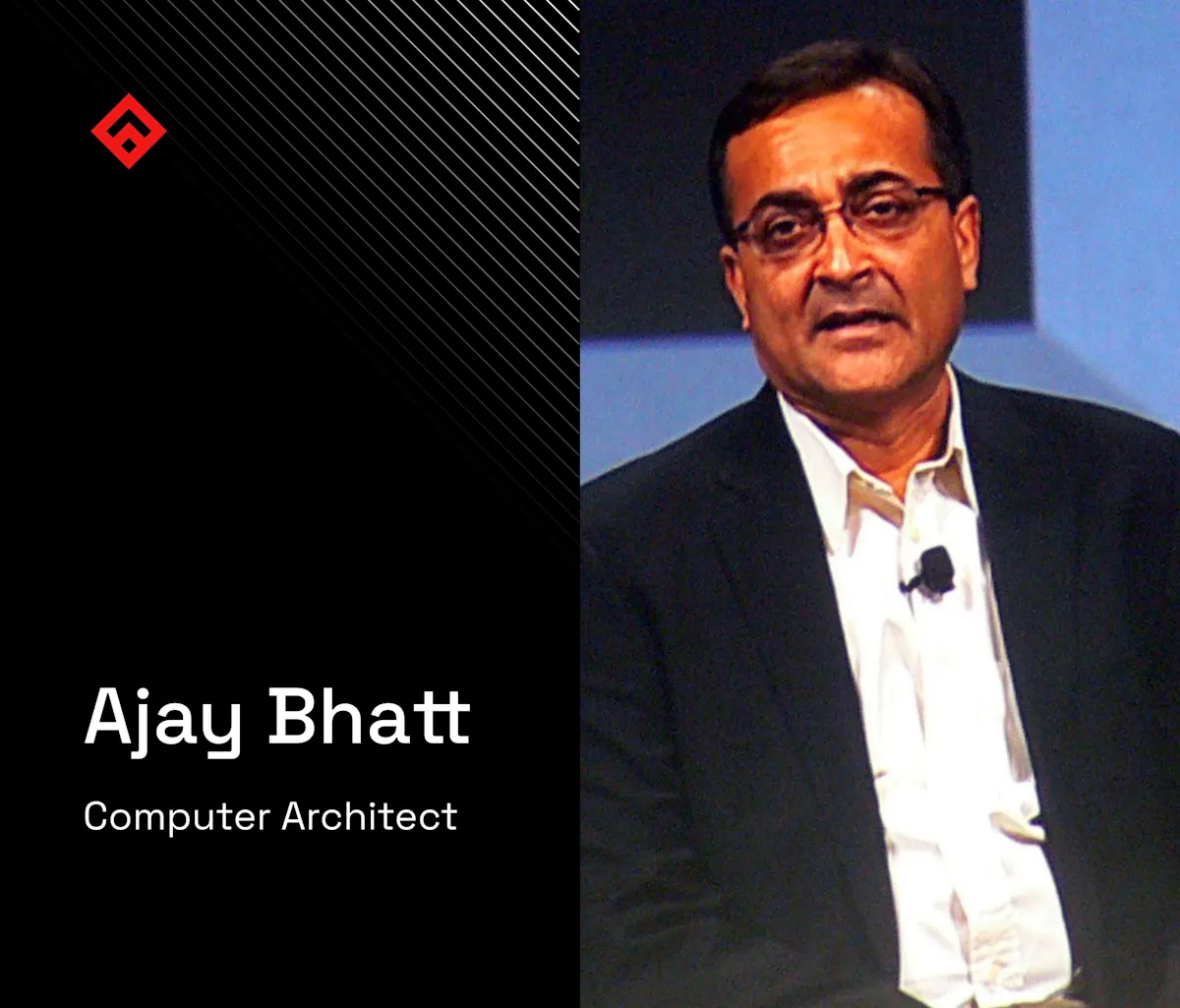
1957 - Present
Background: In 1990, Ajay Bhatt joined Intel as a Senior Staff Architect on the chipset architecture team. Since then, Bhatt has become a household name in the technological community, even being portrayed in the company’s ad campaign in the mid-2000s. He currently holds over 130 patents in the United States and internationally, with several others in progress. He earned a bachelor of engineering from the Maharaja Sayajirao University of Baroda, India, and a master’s degree from the City University of New York.
Innovation: In the early 1990s, Bhatt became frustrated with the growing number of cords that linked separate devices and was determined to create a single connection for all computers. Eventually, he developed the Universal Serial Bus, more commonly known as the USB. Initially, Bhatt struggled to get his colleagues at Intel and other computer firms to buy into the new invention. However, his persistence paid off as the USB is now one of the most used computer products. In addition to the USB, Bhatt was also the mastermind behind the Platform Power Management architecture and various chipset improvements.
An Wang: Computer Engineer and Inventor
1920 - 1990
Background: From a young age, An Wang showed great promise. He attended Shanghai's Chiao Tung University, China’s equivalent of MIT, at just 16. In 1945, Wang immigrated to the United States and earned a doctorate in applied physics from Harvard University just three years later. After graduating from Harvard, he founded Wang Laboratories, Inc., one of the most recognized and successful companies during the early days of the Information Age.
Innovation: Wang invented the magnetic pulse transfer controlling device, making magnetic core memory possible, which contributed to the development of personal computers. His innovation became the standard for computer memories until they were eventually replaced by solid-state devices.
Yoky Matsuoka: Robotics Expert and Computer Scientist
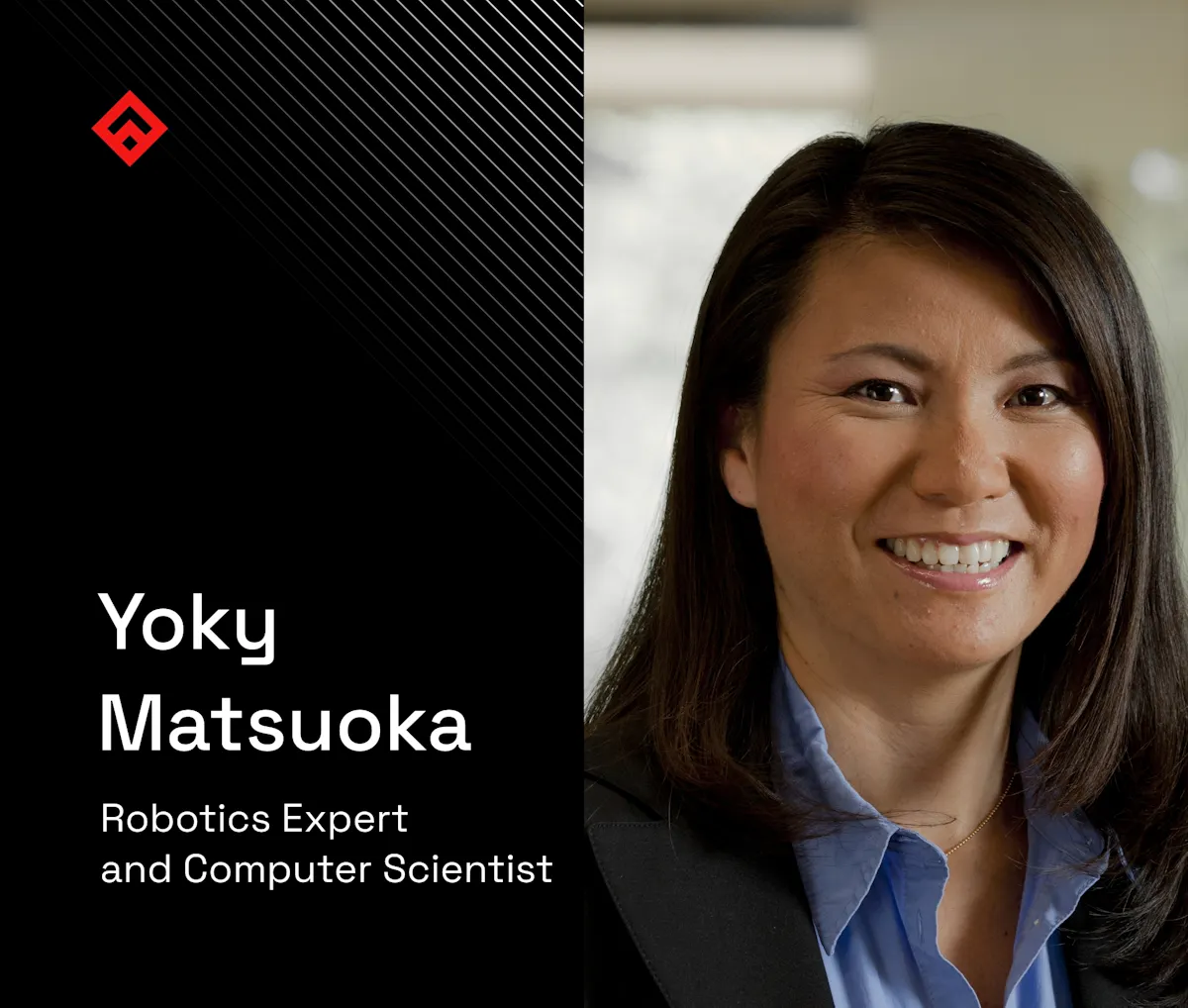
1972 - Present
Background: As a child, Yoky Matsuoka was a semi-professional tennis player in Japan but was unfortunately sidelined due to injuries. It was during this time Matsuoka began to take an interest in robotics. After moving to the United States at 16, she earned her B.S. from the University of California, Berkeley, and an M.S. and Ph.D. in electrical engineering and computer science from the Massachusetts Institute of Technology (MIT). Matsuoka has received the MacArthur Genius Award and co-founded Google’s X.
Innovation: Considered a pioneer in neurorobotics, Yoky Matsuoka constructed an anatomically correct robotic hand that could sense signals that resembled neural commands. Matsuoka’s innovation is a critical step in developing a dexterous prosthetic hand. Her research and innovations have proven life-changing for those with brain injuries and reduced functional capabilities.
Jerry Yang: Computer Programmer and Entrepreneur
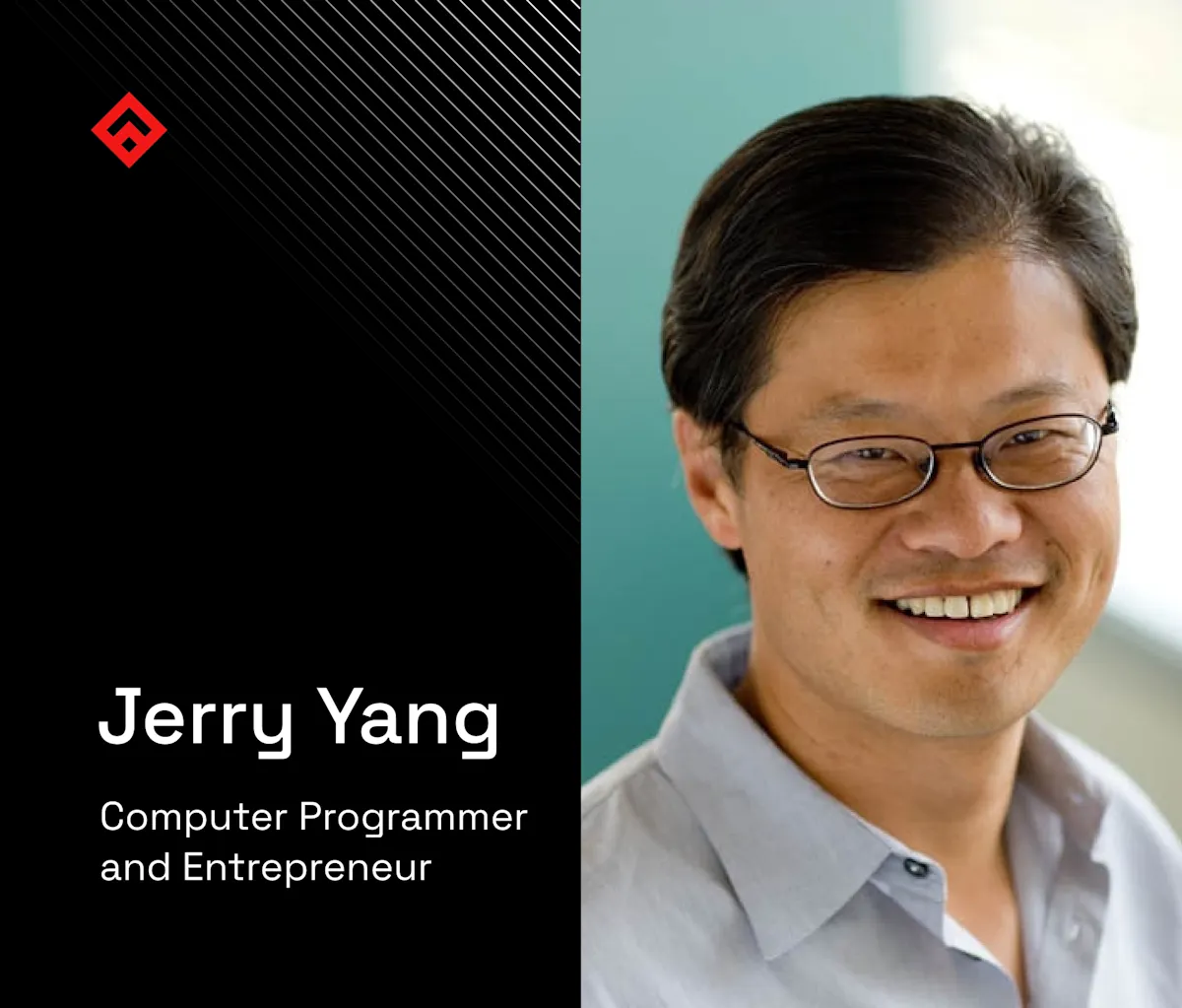
1968 - Present
Background: Born in Taiwan, Jerry Yang’s family moved to the United States when he was 10 years old. His mother was a professor of English—teaching ESL immigrants while he and his brother stayed home with his grandmother. After immigrating to the United States, Yang became fluent in English in three years despite having no prior knowledge of the language. Yang then earned a bachelor of science and a master’s in electrical engineering from Stanford University in just four years.
Innovation: In 1994, while at Stanford University, Jerry Yang met David Filo and the two quickly became good friends. They worked together to co-found an internet website called, “Jerry and David's Guide to the World Wide Web,” which served as a directory of other websites. As the website grew, it was renamed Yahoo! Inc. and became one of the biggest search engines in the world. In 1999, Yang was named one of the 100 innovators in the world under 35 by the MIT Technology Review TR100. After leaving Yahoo! in 2012, Yang became a mentor and investor to technology startups through his firm, AME Cloud Ventures, helping to usher in the next generation of innovators.
Making a lasting impact in tech
The stories of these five trailblazers are shining examples of how diversity in technology has the power to transform lives. If you’re looking to gain the skills to become an innovator, it’s essential to have the right starting point. Tech bootcamps, like those offered by Fullstack Academy, provide you with the in-demand skills you need to thrive in some of the fastest-growing fields. Explore the Fullstack Academy Tech Bootcamps to find the right one for you.
Make Your Move.
Take the first step in your journey by learning more about the immersive tech bootcamps at Fullstack Academy.


